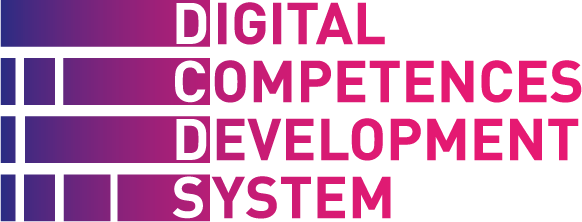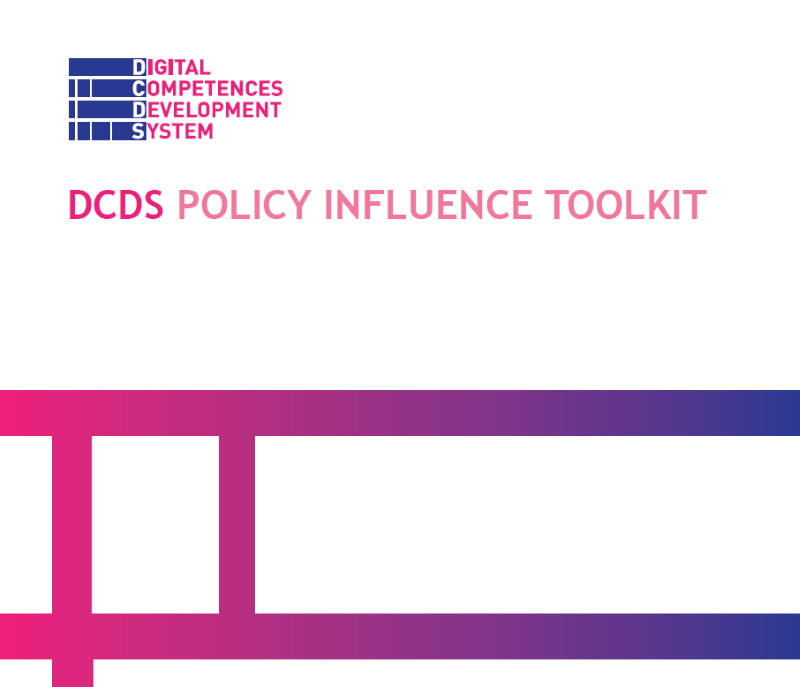The toolkit draws on the experience of the DCDS project partners, both within the DCDS project and beyond. It is for organizations working in the field of digital skills development and digital inclusion, but could be used by a broader range of adult education providers and organizations that wish to develop their policy influence strategy at local, regional and national level.
The DCDS project established a framework to provide low-digitally skilled adults with the basic digital and transversal competences needed for employment, personal development, social inclusion and active citizenship. The project developed an open, innovative multilingual Digital Competences Development System (DCDS) and used it to provide non-formal training to low-skilled adults in different European countries. Being completely aligned with the European Digital Competence Framework for Citizens – Dig Comp 2.1, the project contributes to the promotion of its use by non-formal training providers and its adoption by European policy makers active on adult education and training, social and digital inclusion as well as employment policies.
In the Merriam-Webster Dictionary, advocacy is defined as “the act or process of supporting a cause or proposal”. Advocacy can consist of any activity carried out by an individual or a group which aims to influence decisions within political, economic, and social systems and institutions. It is a means of seeking change in governance, attitudes, power, social relations and institutional functions. Advocacy at all levels of action has been a main priority of all partners throughout the DCDS project.
The toolkit consists of a series of tools for influencing policies; developing a strategy to understand the forces supporting and opposing the desired policy change; suggesting concrete responses, in order to achieve the milestone changes in the process; establishing an action plan for meeting the desired policy objective; and designing a monitoring system.
This toolkit is closely linked to the DCDS policy recommendations, which suggest clear policy objectives related to increasing the number of adults having basic digital skills and identify the changes needed to support this policy outcome. The DCDS policy recommendations also provide effective proposals on how to include the DCDS project outcomes within the services addressed to adults with low digital skills and empower key stakeholders in formulating innovative integrated policies for developing and recognizing adult citizens’ basic digital competences.
The DCDS Policy Influence Toolkit includes a set of steps for the related stakeholders that would like to influence policy makers (and ultimately policy making).
We invite all the readers of this toolkit to consult the recommendations as well.

